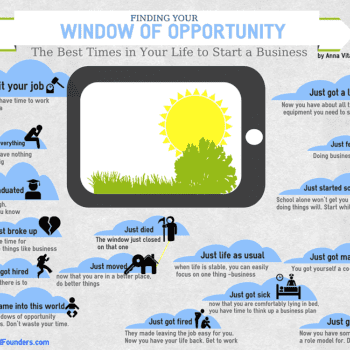When starting a new business, the last thing one wants to focus on is the failure. But addressing reasons for failures up front could minimize the odds of failure.
“But that will not happen to me. I have a brilliant idea and everybody in the market needs it!” You’re probably saying this to yourself. Unfortunately, it takes a lot more than a brilliant idea to build a successful startup. You can easily find startups out there with brilliant ideas that simply didn’t work because of bad strategy, funding issues or any other reason.
Launching a startup has become a trend now, but the ugly truth is that 80% startups fail within the first 18 months. This is not a primer for your startup success, as there are factors that can contribute to making sure your startup fails. But the points described below are the common reasons for most startup’s failure.
1. No One Is Going To Fund Your Startup
There is one ingredient that can make or break a startup in the early days – money.
If you are trying to raise money for an idea that isn’t fundable, you are mistaken. And, if you need funding to pay your bills, you are simply conning yourself into assuming that you will raise any money at all. That’s because savvy investors are not interested in experimenting and are very picky. They are looking for the ‘next big thing’ which can give them excellent return on investment. So, you might not find it surprising that VCs finance only about 1-2% ventures they see.
2. There Is No Co-Founder
There are few reasons that going alone might sound compelling to many such as being a sole decision maker and owning all the company profits, however, there are considerably more reasons that should direct you otherwise.
Startups are demanding, stressful and all-consuming. As a result of enormous workload that is needed to launch a startup, mountain of stress is inevitable. It can be too much to handle all alone. Even by assuming that you can do everything, you still need someone to cheer you up when things go awry and partner to brainstorm with.
3. You Ignore the Customer
One of a tried and true way to failure – ignore your customers. This is a huge problem with startups. They are just guessing their customer needs rather than knowing using “build-it-and-maybe-they-will-come” approach.
Once you start listening to your customers, you will be surprised to know that they are more than willing to tell their needs. If you think you know the best – you don’t. Usually, customers have their own vision of the product and it’s your job to give them precisely what they want, or even better and adopt a proactive approach.
4. Your Startup Is In a Stealth Mode for Too Long
This is same as people procrastinating in everyday life. If you are waiting to finish tasks before launching, you will never be ready to launch. You need to launch it NOW. That simple. Nothing will be perfect ever. You can always make changes as you move along. Just ask Microsoft.
Probability is that you would possibly find yourself catering to an entirely different audience than what it was meant for initially. Usually, customers have their own vision of the product and it’s your job to give them precisely what they want, or even better and adopt a proactive approach.
5. The Team Doesn’t Have the Competence
So you are ready to launch and got enough cash to keep you going. But do you have the team to make it happen?
A team that can execute and innovate is a crucial factor that can either make or break a business which also includes the partners. There is a reason why investors put heavy emphasis on your team. And it’s not just about hiring the smart people but also complementing each other’s strengths and having a confidence in them to give control over their responsibility areas.
Building a great team is your single best chance of succeeding. The diversity of skills from day one is essential. You must attract and retain the right people to understand and scale your company.
6. Thinking That Your Idea is Special
The excitement of a startup can often lead to assume that you have no direct competitors, or that your product is so unique that you are in a category of your own. While in reality, it’s extremely rare to have no competitors.
We have heard this most often – focus on your own business instead of being distracted by competitors. However, this does not mean that you should ignore your competitors.
Yes, the other product doesn’t deal exactly with what you do, but does the customer care? Ignoring the fact that there are competitors is a recipe for disaster in most startups failures.
Final Note
If your startup has failed, it’s worth spending some time to understand about things that went wrong and learn from them to make it next time. The list would help you avoid these common pitfalls. Every time, you just get better to execute and be successful.
Batten down the hatches, tough times are sure to come. Don’t just read this. It’s time to take action and fix what’s broken. Otherwise, you are out cold and slumped with no one to blame but yourself.
written by Renuka Rana of Ace Cloud Hosting





























